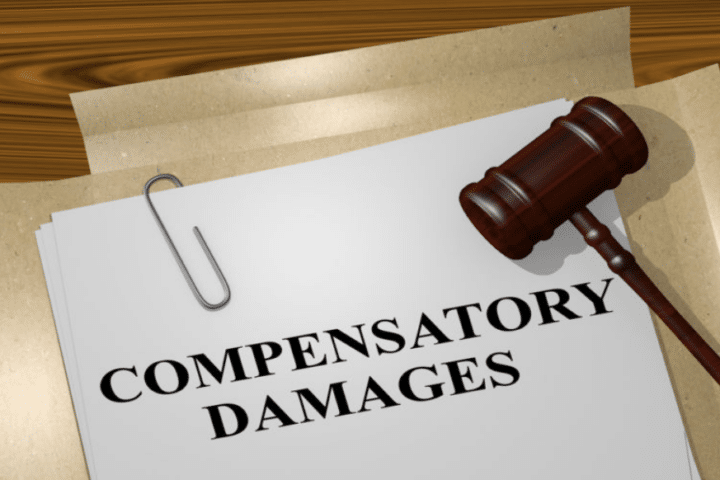If you have been injured because of someone else’s negligence, the consequences can be physically, emotionally, and financially devastating. In addition to the pain and suffering you have suffered, you may also face high medical bills, lost wages, and ongoing challenges that affect your quality of life. Fortunately, personal injury lawsuits provide victims with a legal means of seeking compensation and bringing the responsible parties to justice.
In this article, we explore the various types of damages that victims can seek in personal injury lawsuits, ensuring that you understand your rights and the potential avenues for obtaining justice and financial support.
Types of Damages in Personal Injury Lawsuits
Personal injury lawsuits aim to compensate victims for their losses, including physical, emotional, and financial harm. There are three main categories of damages: economic, non-economic, and punitive damages.
According to the Bureau of Justice (BJS), in 2019, the majority (62%) of personal injury cases involved economic damages, while 44% involved non-economic damages.
Personal injury lawsuits play a crucial role in ensuring that victims are fairly compensated for their losses and that wrongdoers are held accountable for their actions.
ADVERTISEMENT
Economic Damages: Quantifying Financial Losses
One of the primary components of personal injury compensation is economic damages, which aim to address the tangible financial losses resulting from the injury or accident. These damages can include:
-
Medical Expenses:
This encompasses all past, present, and future medical costs associated with the injury, such as hospital stays, surgeries, rehabilitation, and ongoing treatment or therapies.
-
Lost Wages:
If the injury prevented you from working or reduced your earning capacity, you may be entitled to recover lost wages, including future loss of income if the injury has long-term effects on your ability to work.
-
Property Damage:
In cases involving vehicle accidents or property damage, you can seek compensation for the repair or replacement costs of your personal belongings or property.
-
Household Services:
Injuries that prevent you from performing routine household tasks or caring for yourself may qualify you for compensation to cover the costs of hiring assistance for these services.
By meticulously documenting and presenting evidence of these economic losses, your personal injury attorney can ensure that you receive fair compensation for the financial burdens imposed by the injury or accident.
ADVERTISEMENT
Non-Economic Damages: Addressing Intangible Losses
While economic damages focus on quantifiable financial losses, personal injury lawsuits are also a means of seeking compensation for non-economic damages. Intangible and subjective losses that may have a profound impact on your life. Explore ConsumerShield for details, a legal advocacy group guiding you to the resources you need, to better understand your rights and options regarding non-economic damages. These damages may include:
-
Pain and Suffering:
This category encompasses the physical pain, discomfort, and emotional distress endured as a result of the injury or accident. It accounts for the overall diminished quality of life and mental anguish experienced.
-
Loss of Enjoyment of Life:
If the injury has prevented you from engaging in activities or hobbies that previously brought you joy and fulfillment, you may be entitled to compensation for this loss of enjoyment.
-
Loss of Consortium:
In cases involving severe injuries or loss of life, spouses or family members may be able to seek compensation for the loss of companionship, love, and support.
-
Disfigurement or Scarring:
Injuries that result in permanent physical disfigurement or visible scarring can qualify for additional compensation due to the psychological and emotional impact.
Quantifying these non-economic damages can be challenging, but experienced personal injury attorneys employ various methodologies and expert testimony to accurately assess and present these claims.
Punitive Damages: Holding Negligent Parties Accountable
In cases where there has been particularly serious or intentional misconduct, the court may award punitive damages in addition to compensatory damages. In contrast to compensatory damages intended to compensate the victim, punitive damages serve as a punishment for the responsible party and as a deterrent against similar future actions.
Punitive damages are generally reserved for cases where the defendant’s conduct was willful, malicious, or manifested a reckless disregard for the safety and well-being of other persons. Examples include drunk driving, intentional violence, or corporate misconduct in favor of profits over public safety.
While punitive damages may be significant, they are subject to strict legal standards and restrictions to ensure fairness and prevent excessive compensation. Your personal injury lawyer will assess the circumstances of your case and determine whether it is appropriate to pursue punitive damages.
Maximizing Compensation and Pursuing Justice
Personal injury lawsuits not only provide a path to financial compensation but also serve as a means of retribution to negligent parties and promote a safer environment for all. If you understand the various types of damages available, you will be able to work closely with your legal team in order to create a comprehensive case that will cover the full extent of your losses and suffering.
Seek the guidance and support of experienced legal professionals who can handle the complex nature of personal injury law and advocate tirelessly on your behalf. Remember, the journey to obtaining fair compensation can be complex and emotionally challenging.
FAQs
What is the statute of limitations for personal injury lawsuits?
The statute of limitations varies by state but generally ranges from one to three years from the date of the accident or injury.
How much does it cost to hire a personal injury attorney?
Most personal injury attorneys work on a contingency fee basis, meaning you only pay if they secure compensation for you.
What if I’m partially at fault for the accident?
You may still be eligible for compensation, but the amount may be reduced based on your degree of fault. Consult with an attorney to discuss your specific situation.
Personal injury lawsuits provide victims with a means of seeking justice and various types of compensation, including economic compensation for financial losses, non-economic compensation for intangible losses, and, in some cases, punitive compensation for damages resulting from negligence.
If you understand your rights and work closely with experienced legal professionals, you will be able to deal with the complexities of personal injury litigation and seek compensation for the harm and suffering suffered.









